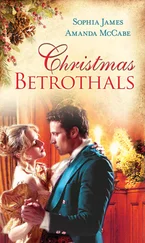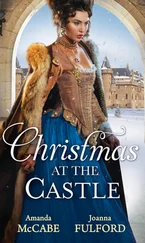Aunt Dimity’s
Christmas
Aunt Dimity - 05
Nancy Atherton
FOR
MOM AND DAD,
MY HEROES
1
My father died when I was three months old. I don’t recall his laughter or his touch. My memories of him came secondhand, through my mother’s words and well-thumbed photo albums.
“Your father was a soldier,” my mom told me, and there he is, in grainy black-and-white, with his GI grin and rumpled uniform, standing in the ruins of Berlin. Kids in ragged clothing cluster near him, holding high the gifts he’s taken from a tattered duffel bag—chocolate bars and chewing gum, socks and stocking caps, bits and bobs finagled from his squad. No department-store Santa ever looked half so merry as my dad did that day, among the children in the ruins of Berlin.
“Your father’s favorite holiday was Christmas,” my mother said, and fully half the photos in the albums prove her point. There he is, years later, playing Santa at our church on the west side of Chicago, baking angel cookies to give to friends and neighbors, placing the star atop one glittering tree after another. While my father was alive, Christmas began on my mother’s birthday, the fourteenth of December, and climaxed with a lavish party on Christmas Eve.
Christmas Day was spent recuperating.
After my father’s death, my mother cut back on the festivities, for emotional as well as financial reasons. When I was growing up, there was always a whiff of mourning in the crisp winter air. No one had to tell me not to compare my father’s extravagant celebrations with my mother’s humbler holidays, but I secretly lived for the day when my Christmases would match those in the photographs.
“The day has finally come,” I murmured. I curled my legs beneath me on the cushioned window seat and gazed upward at the sky. I was a grown woman now, with two children of my own, and the lean times I’d endured after my mother’s death were a thing of the past. Thanks to an unexpected inheritance from a family friend, I possessed a cottage in England and a fortune large enough to celebrate Christmas as lavishly as I pleased. This year, I vowed, my father’s favorite holiday would again be a time of jubilation, freed at last from any hint of sorrow.
The crescent moon sailed serenely between lowering clouds, and the dead leaves on the beech hedge fluttered dryly in a bitter northeast wind. I eyed the heavy-laden clouds intently and shivered with anticipation. Christmas—my first Christmas in England and my sons’ first Christmas ever—was a mere two weeks away. I wanted it to be perfect.
It was unfortunate, to be sure, that my nanny had temporarily abandoned her post to enjoy a prolonged holiday in Italy with her fiancé. The twins were nine months old and fearfully mobile. It was no easy task to keep them from killing themselves and/or dismantling the cottage, but my father-in-law accepted the challenge without a second thought.
William Willis, Sr., arrived at the cottage the day after my nanny departed, and insisted on assuming her duties. Willis, Sr., was no fair-weather grandfather. He was a fastidious, patrician gentleman in his mid-sixties, a Boston Brahmin and a lawyer of high repute, but his passion for fine tailoring was nothing compared to his passion for his grandsons.
He slept on a rollaway bed in the nursery, got the boys up in the morning, read stories to them at night, and took dirty diapers, flying farina, and splashy baths in stride. When I commented wonderingly on his devotion, he informed me that since he’d never expected to live long enough to see his son’s sons, he intended to make every moment with them count.
With Willis, Sr., in residence, I was able to go full speed ahead with my holiday plans. I took stock of my winter wardrobe and declared it null and void. My blue jeans and Salvation Army sweaters reminded me too strongly of the bad old days, so I dispatched the lot to Oxfam and filled my closet with silk-lined, custom-tailored trousers and tops that ran the gamut from raw silk to handspun wool to jewel-toned velvets. I replaced my ratty sneakers with handmade Italian boots, in suede and buttery leather, and my even rattier bathrobe with a vintage 1940s dressing gown in the softest shades of gray and baby blue. I splurged on a sumptuous black cashmere swing coat with a shawl collar I could snug around my face when the harsh winds blew. I’d never been a clotheshorse, but I was learning fast.
Once I’d refreshed my wardrobe, I escorted my husband to Oxford to be fitted for a Father Christmas suit. While he was at the tailor’s, I hunted down exquisite antique ornaments and a lacy spun-glass star for the top of the tree. Bill and I plundered London on a dozen shopping sprees, buying gifts for everyone we knew.
We roamed the bridle path in the oak grove near the cottage, harvesting evergreen boughs, bunches of holly, and sprigs of mistletoe, and brought home a living Christmas tree from a nursery near Oxford. I invited Bill’s English relatives to our Christmas Eve bash and arranged for them to spend the night at Anscombe Manor, the spacious home belonging to my closest friend and nearest neighbor, Emma Harris. I ordered a goose, a turkey, and two hams for the party, along with sundry accompaniments, and stockpiled ingredients for the daily round of baking that would fill the cottage with holiday aromas.
The decorating, the baking, the wrapping of presents, and the warbling of carols would begin tomorrow, the fourteenth of December, my late mother’s birthday. I could hardly wait.
Even now, I could picture the living room, the hallway, the staircase, the entire cottage lit with candles, wreathed with evergreen garlands, and decked with boughs of holly. Best of all, I could envision my family—husband, father-in-law, and sons—gathered before the hearth, with mugs of hot cocoa and plates of angel cookies, enjoying the special peace of Christmastime.
There was only one thing missing from my perfect celebration. I leaned forward to breathe upon the window-pane and wrote with a fingertip in the frosty condensation: snow. I wanted snow so badly I could taste it. I wanted it to fall in drifts and block the lanes and transform the furrowed fields into something pristine and magical. I longed to watch my sons’ eyes widen as the cottage disappeared beneath a sparkling cascade of swirling flakes. When the heavy clouds swallowed the slender moon, I peered upward and rejoiced.
My husband cleared his throat and I turned to face the living room. Bill sat in his favorite armchair, clad in a crewneck sweater and twill trousers, gazing pensively into the middle distance. Willis, Sr., dressed down for the evening in creased pajamas, leather slippers, and a magnificent paisley dressing gown, sat in an armchair on the opposite side of the hearth, reading a novel. A fire, lit after the babies were safely tucked up in the nursery, crackled merrily and cast a rosy glow over the low-ceilinged, comfortably furnished room.
I sighed with pleasure and gazed adoringly at Bill. He would make a splendid Father Christmas. If anyone had been born to play the role of a gift-giving saint, it was my gentle, great-hearted husband.
Bill cleared his throat once more and folded his hands over his stomach. “Christmas,” he stated flatly, “should be abolished.”
“Huh?” I said, startled.
“Christmas should be abolished,” said Bill, biting off each word. “I’m sick to death of it.”
“But it hasn’t even started yet,” I objected.
Bill blinked rapidly. “It hasn’t started? Then what have we been doing for the past month?”
“Getting warmed up,” I replied.
“Lori,” Bill said slowly, “do you realize that we’ve been to fifteen parties in the past ten days?”
Читать дальше








